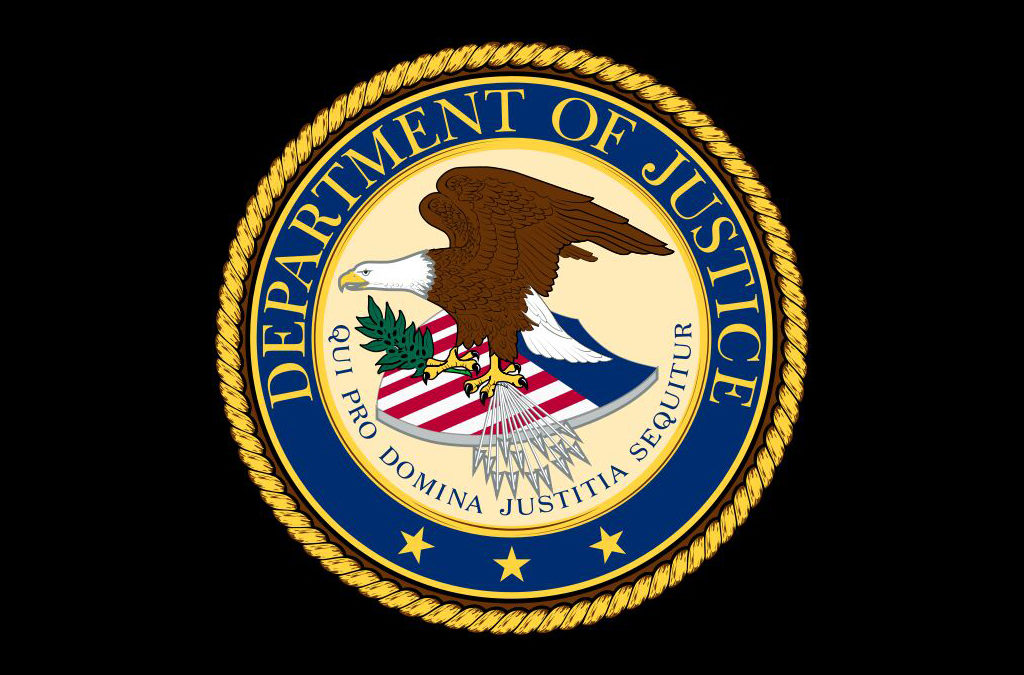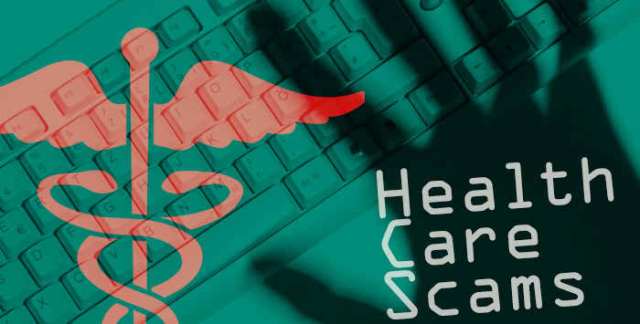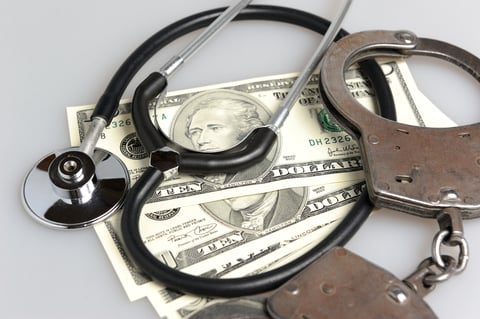https://www.healthleadersmedia.com/feds-indict-24-massive-12b-telemarketing-dme-scheme

Collectively, the executives, business owners and medical professionals involved in the conspiracy are accused of causing more than $1 billion in losses for Medicare.
KEY TAKEAWAYS
Two dozen people were indicted in the multistate, international telemarketing and DME scheme, which allegedly occurred in 17 federal judicial districts.
The 130 DME companies submitted more than $1.7 billion in claims to Medicare, were paid more than $900 million, and accounted in total for more than $1 billion in losses for the federal government.
The swindled money was allegedly laundered through international shell corporations and used to purchase exotic automobiles, yachts and luxury real estate in the United States and abroad,
Federal prosecutors are calling it one of the largest healthcare fraud schemes they’ve ever investigated.
Criminal indictments were made public this week against 24 people, including CEOs, COOs, physicians, and other executives at five telemedicine companies, and the owners of 130 durable medical equipment companies across 17 federal judicial districts for their roles in various schemes to bilk Medicare out of $1.2 billion.
Prosecutors said the DME companies allegedly paid kickbacks and bribes in exchange for the referral of Medicare beneficiaries by physicians in cahoots with fraudulent telemedicine companies for unnecessary back, shoulder, wrist and knee braces.
Some of the defendants allegedly controlled an international telemarketing network that lured over hundreds of thousands of elderly and/or disabled patients into a criminal scheme that crossed borders, involving call centers in the Philippines and throughout Latin America, prosecutors said.
The defendants allegedly paid doctors to prescribe DME either without any patient interaction or with only a brief telephonic conversation with patients they had never met or seen.
“The breadth of this nationwide conspiracy should be frightening to all who rely on some form of healthcare,” said Don Fort, Chief of Criminal Investigations at the Internal Revenue Service, one of six federal agencies involved in the probe.
“The conspiracy described in this indictment was not perpetrated by one individual. Rather, it details broad corruption, massive amounts of greed, and systemic flaws in our healthcare system that were exploited by the defendants,” Fort said.
The 130 DME companies submitted more than $1.7 billion in claims to Medicare and were paid more than $900 million, and accounted in total for more than $1 billion in losses for the federal government.
The swindled money was allegedly laundered through international shell corporations and used to purchase exotic automobiles, yachts and luxury real estate in the United States and abroad, prosecutors said.
Court documents allege that some of the defendants lured patients for the scheme by using an international call center that advertised to Medicare beneficiaries and “up-sold” the beneficiaries to get them to accept numerous “free or low-cost” DME braces, regardless of medical necessity.
The international call center allegedly paid illegal kickbacks and bribes to telemedicine companies to obtain DME orders for these Medicare beneficiaries. The telemedicine companies then allegedly paid physicians to write medically unnecessary DME orders. Finally, the international call center sold the DME orders that it obtained from the telemedicine companies to DME companies, which fraudulently billed Medicare.
DEFENDANTS IDENTIFIED
- In New Jersey, Neal Williamsky 59, of Marlboro, and Nadia Levit, 39, of Englishtown, New Jersey, owners of 25 DME companies, were indicted for their alleged participation in a $150 million scheme.
Albert Davydov, 26, of Rego Park, New York, was charged for his alleged participation in a $35 million DME scheme.
Creaghan Harry, 51, of Highland Beach, Florida; Lester Stockett, 51, of Deefield Beach, Florida; and Elliot Loewenstern, 56, of Boca Raton, Florida; the owner, CEO and VP of marketing, respectively, of call centers and telemedicine companies were charged for their alleged participation in a $454 million kickback and money laundering scheme.
Joseph DeCoroso, MD, 62, of Toms River, New Jersey, was charged in a $13 million conspiracy to commit healthcare fraud and separate charges of healthcare fraud for writing medically unnecessary orders for DME, often without speaking to patients, while working for two telemedicine companies.
- In Florida, Willie McNeal, 42, of Spring Hill, the owner and CEO of two telemedicine companies, was charged for his alleged participation in a $250 million scheme to swap kickbacks and bribes for DME referrals.
- In Dallas, Texas, Leah Hagen, 48, and Michael Hagen, 51, of Dalworthington Gardens, owners and operators of two DME companies, were charged for their alleged participation in a $17 million kickback scheme that generated unnecessary DME orders.
- In El Paso, Texas, Christopher O’Hara, 54, of Kingsbury, the owner of a telemedicine company, was charged in an $40 million scheme to swap kickbacks and bribes for referrals to DME providers.
- In Philadelphia, Randy Swackhammer, MD, 60, of Goldsboro, North Carolina, was charged for an alleged $5 million conspiracy to commit healthcare fraud. Swackhammer allegedly wrote medically unnecessary orders for DME while working for a telemedicine company, often with only brief conversations with patients.
- In California, Darin Flashberg, 41, and Najib Jabbour, 47, both of Glendora, and owners of seven DME companies, were charged with alleged participation in a $34 million scheme that paid kickbacks and bribes in exchange for unnecessary DME orders.
- In South Carolina, Andrew Chmiel, 43, of Mt. Pleasant, owner of over a dozen companies involved in the scheme, was charged in a $200 million scheme to pay kickbacks and bribes in exchange for unnecessary DME orders.
“THE BREADTH OF THIS NATIONWIDE CONSPIRACY SHOULD BE FRIGHTENING TO ALL WHO RELY ON SOME FORM OF HEALTHCARE. ”
DON FORT, CHIEF OF CRIMINAL INVESTIGATIONS AT THE INTERNAL REVENUE SERVICE






